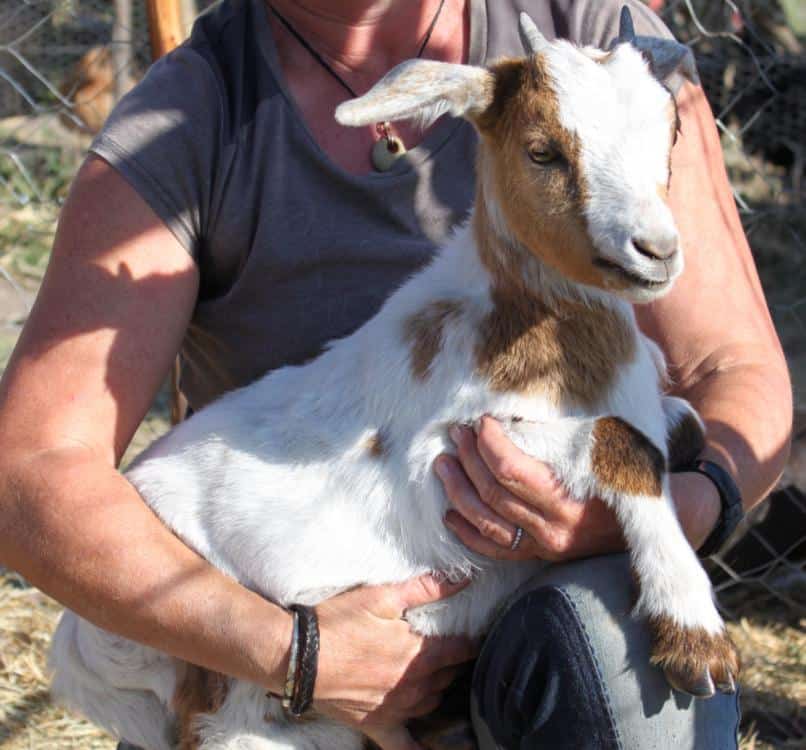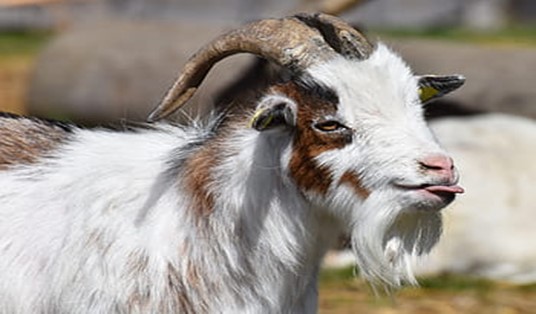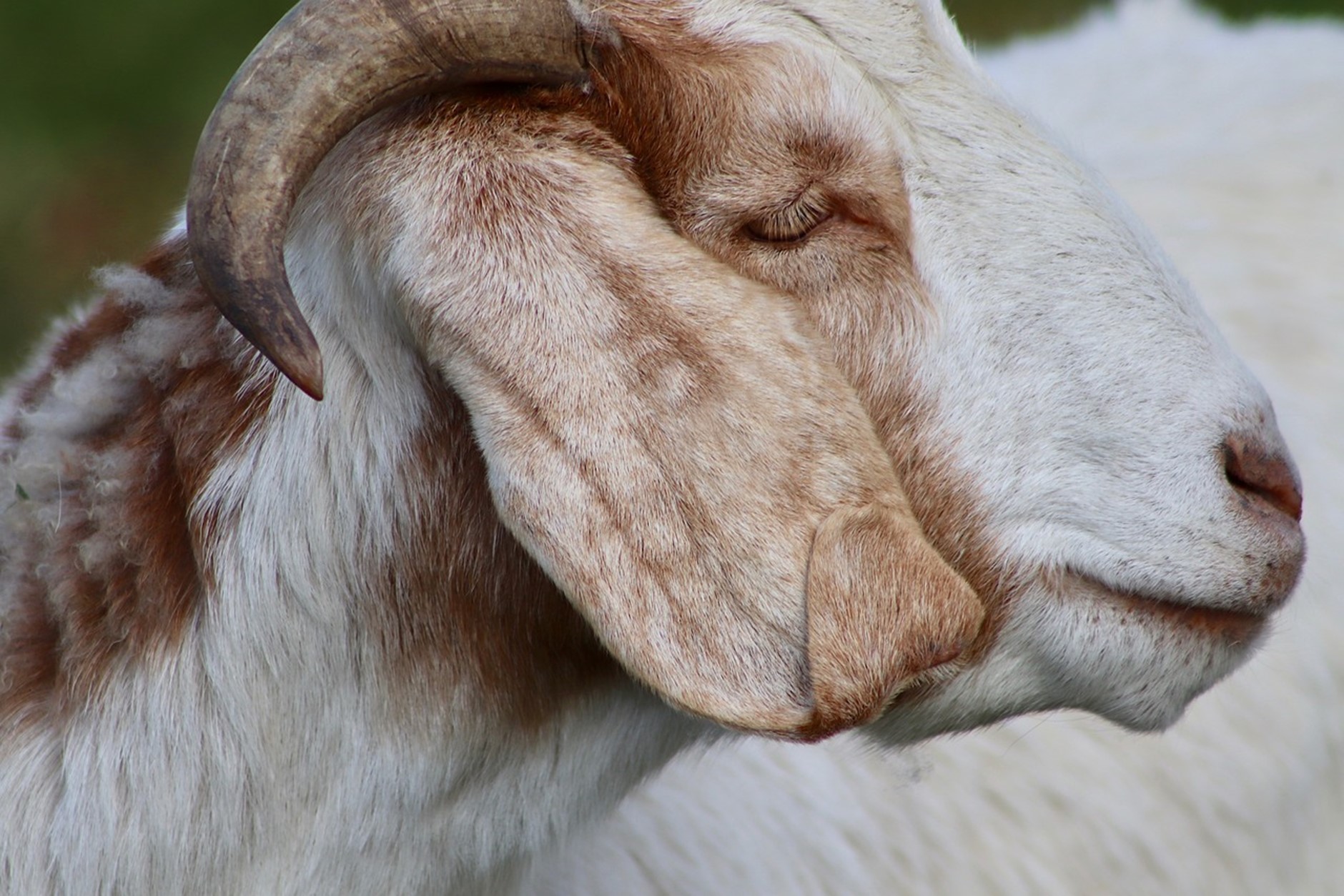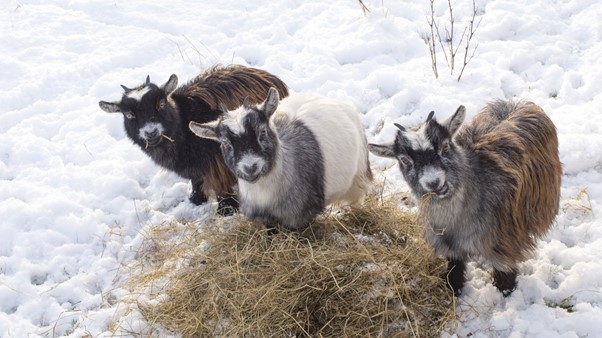Wether goats, distinct among various goat breeds, offer unique advantages for farm owners.
These goats are essentially neutered bucks or bucklings, having undergone castration.
This process is common for bucks that are no longer viable for breeding.
Wether goats stand out due to their numerous benefits, which are particularly advantageous for those managing a goat farm.
From aiding in breeding management to serving as reliable pack leaders, these goats present a range of practical and economical solutions.
As we delve deeper, we’ll explore the specific pros that make wether goats a valuable addition to any farm.
Wether Goats

There are various types of goat breeds available in the market for adding them to your goat farm, but a Wether goat is somewhat special.
A Wether goat is just a buckling or a buck that is neutered.
This means he had his testicles removed, or in a technical way, you can say it has gone through the castration process.
This type of practice is usual among farm owners having a buckling that has passed its ability to breed.
So, the buckling is castrated; it is done as it has many advantages to the farm owner.
In the following segment, we will be taking a detailed look at some of the most recognizable pros that goats offer us.
Wether Goats: A Perfect Companion
1. Monitor Breeding’s Effectively
Breeding your Does with the right buckling can sometimes be challenging, even for seasoned breeders.
One way to determine if breeding attempts are successful is to observe the behavior of the Does around a Wether goat.
Wether goats are castrated or unable to breed, they play a crucial role in signaling when Does are in heat.
By observing a Doe allowing a Wether goat to mount her, breeders can identify the optimal time for introducing the buckling.
2. Pack Leaders
In addition to their role in breeding, Wether goats are also valuable as pack leaders.
They are easier to train than bucklings and can effectively lead the herd to pasture and back.
Their calming presence can also help maintain peace within the herd and they are known to be protective and caring towards younger animals.
3. Clear Unwanted Grass
Wether goats also contribute to farm maintenance by clearing unwanted vegetation.
They are effective in consuming weeds, twigs, and other unwanted plants, thus aiding in land management.
This natural grazing not only keeps the land clear but also exposes hidden debris, making cleaning more efficient.
4. Carrying Things
Furthermore, whether goats are strong and capable of carrying significant weight, up to 25% of their body weight.
This makes them useful for transporting items around the farm. Their strength, combined with their loyalty and obedience, makes them preferable to bucklings or Does for such tasks.
5. A Loving Pet
Wether goats, often overlooked in favor of cute dogs and kittens, make exceptional pets due to their sweet faces, loving nature, and gentle demeanor.
Unlike bucks, which can be aggressive and unpredictable, or Does, which might become stressed or aggressive when in heat.
Wether goats offer a more even-tempered and family-friendly option for a pet.
Training Wether goats can be a rewarding experience.
They are often used in community outreach programs, contributing positively and interacting well with people of all ages.
6. No Smell
One significant advantage of Wether goats over bucks is the lack of smell.
Bucks often emit a strong odor from their scent glands, especially noticeable when they are near.
During the breeding season, bucks intensify this issue by spraying urine on themselves, creating an unpleasant environment.
Thankfully, Wether goats do not have these issues, making them more pleasant companions, especially in enclosed spaces.
7. No Hormonal Ruts
Another benefit of choosing a Wether goat as a pet is the absence of hormonal ruts.
Ordinary male goats exhibit hormonal changes during the breeding season, becoming aggressive and potentially dangerous around children and young goats.
Since wether goats are castrated, these hormonal fluctuations are not a concern, making them safer and more predictable pets.
8. Subtle Living Arrangements
When it comes to housing, wether goats are less demanding than bucks.
Bucks often require separate shelters to prevent aggression and unintended breeding with Does.
This segregation is crucial for the health of the herd and can lead to additional costs for building and maintaining separate living spaces.
In contrast, Wether goats can safely cohabit with Does and other goats, simplifying farm management and reducing the need for extra housing.
9. Easy to Handle
Handling Wether goats is generally easier compared to bucks.
Despite often being larger in size, Wether goats are known for their gentle nature and are easier to manage.
Bucks, particularly during the breeding season, can be challenging and unsafe to handle, especially for children.
Their stubborn and aggressive behavior can make daily tasks more difficult.
Wether goats, on the other hand, are more cooperative and amenable to handling, making them a more practical choice for both farm work and as family pets.
Wether Goat: Longevity and Inexpensiveness
Purchasing Does and bucklings for your farm can be a significant investment, often costing hundreds to thousands of dollars.
Quality female goats, typically purebreds, are essential for a profitable business, and strong, healthy bucks are needed for effective and consistent breeding.
However, a baby Wether goat is a more budget-friendly option, costing around $100.
Considering their numerous benefits, this makes them a very appealing choice for farm owners looking to manage costs.
1. No Need to Get Too Many Bucks

When it comes to bucks, many experts recommend limiting their number on the farm.
This is because each buck requires individual living space, which can be a challenge for farms with limited land.
Overcrowding bucks can lead to problems, especially if there’s insufficient space to separate them from each other and from the Does.
Therefore, it’s often advised to keep only the strongest bucks for breeding and to wether the others.
This approach not only stabilizes the herd but also reduces management difficulties.
It’s also a good practice to wether bucklings past their prime breeding age to simplify farm operations.
This strategy helps in maintaining a manageable and efficient herd, ensuring the health and well-being of the animals while keeping costs in check.
2. Wether Goats Live Longer

Wether goats outgrow and outlive other goats for a couple of years.
The relief from the reproduction process, again and again, increases the ability to live longer.
A typical buckling and Doe normally lives up to the age of 12-13 years. On the other hand, a wethered goat is expected and usually lives up to the age of 16!
So yes, reproduction cuts short a couple of years from the total lifespan, and you can say a weather goat avoids that case.
Conclusion
In summary, wether goats are an excellent choice for farm owners, providing a multitude of benefits that extend beyond traditional goat farming practices.
They are not only cost-effective, costing around $100 for a baby goat, but also offer a longer lifespan, often living up to 16 years compared to the typical 12-13 years for unneutered goats.
This extended lifespan is attributed to the absence of reproductive stress.
Additionally, their ease of management, lack of aggressive behavior, and reduced space requirements make them an ideal choice for farmers looking to optimize their operations.
Wether goats are versatile, practical, and a wise investment for both small-scale and large-scale goat farming endeavors.

